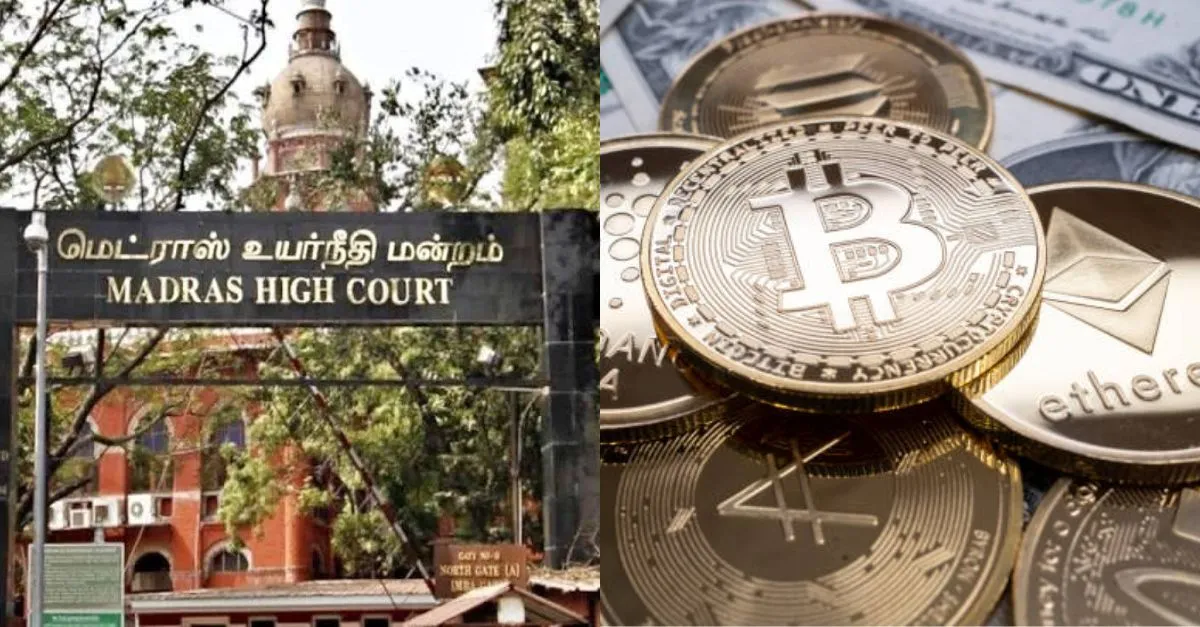- By Yashashvi Tak
- Sun, 26 Oct 2025 03:54 PM (IST)
- Source:JND
The Madras High Court has announced that cryptocurrencies are considered property under Indian law, allowing individuals to own them and even hold them in trust. Justice N Anand Venkatesh emphasized that, while cryptocurrencies are neither tangible assets nor legal tender, they possess all essential characteristics of property.
The court stated, “Cryptocurrency is property. It is neither physical nor a currency, but it can be possessed and enjoyed, and can be held in trust.”
The ruling arose from a case linked to a cyberattack on the WazirX exchange, operated by Zanmai Labs Pvt Ltd. An investor had purchased 3,532.30 XRP coins valued at Rs 1,98,516 in January 2024. In July, WazirX disclosed that a cold wallet hack had resulted in a loss of roughly $230 million in Ethereum and ERC-20 tokens, leading to the freezing of all user accounts, including the investor’s.
ALSO READ: Karur Stampede: Supreme Court Orders CBI Probe After 41 Killed, Over 60 Injured At Vijay’s TVK Rally
The investor contended that her XRP coins were unaffected by the hack and were held in trust by WazirX, seeking protection under Section 9 of the Arbitration and Conciliation Act, 1996 to prevent the company from redistributing her assets. Zanmai Labs and its directors countered, noting that their Singapore-based parent, Zettai Pte Ltd, was undergoing restructuring under a Singapore court order that required sharing losses among all users.
Justice Venkatesh dismissed Zanmai Labs’ argument, clarifying that the XRP coins were separate from the Ethereum-based tokens that were compromised.
“What was held by the applicant as crypto currencies were 3532.30 XRP coins. What was subjected to cyber attack on 18.7.2024 in the WazirX platform were ERC 20 coins, which are completely different crypto currencies not held by the applicant,” the Court observed.
He noted that cryptocurrencies are identifiable, transferable, and controlled through private keys, making them a form of property. The judge also referenced Section 2(47A) of the Income Tax Act, 1961, which recognizes cryptocurrencies as “virtual digital assets.”
The Court said, “In Indian law regime, the crypto currency is treated as a virtual digital asset and it is not treated as a speculative transaction.”
The court further rejected claims that it lacked jurisdiction due to the arbitration being based in Singapore. Citing the Supreme Court’s decision in PASL Wind Solutions Pvt Ltd v. GE Power Conversion India Pvt Ltd (2021), Justice Venkatesh explained that Indian courts can protect assets located in India, and since the investor’s transactions occurred from Chennai using an Indian bank account, the Madras High Court had authority over the matter.
Additionally, the court highlighted that Zanmai Labs is registered with India’s Financial Intelligence Unit (FIU) and is permitted to operate in India, unlike Zettai Pte Ltd or Binance. “In the present case, it is the first respondent, which got registered as a reporting entity and is, therefore, authorised to handle crypto currency in India. Neither the Zettai nor Binance is registered as a reporting entity in India,” he observed.
ALSO READ: Nirav Modi Extradition: Former SC Judge Deepak Verma Offers Expert Opinion, Who Is He
Justice Venkatesh stressed that Web3 and cryptocurrency platforms should adhere to standard corporate governance practices, including maintaining separate client funds, undergoing independent audits, and implementing robust KYC and anti-money laundering procedures. He concluded that courts are increasingly instrumental in defining legal rights, responsibilities, and trust within the digital economy.

